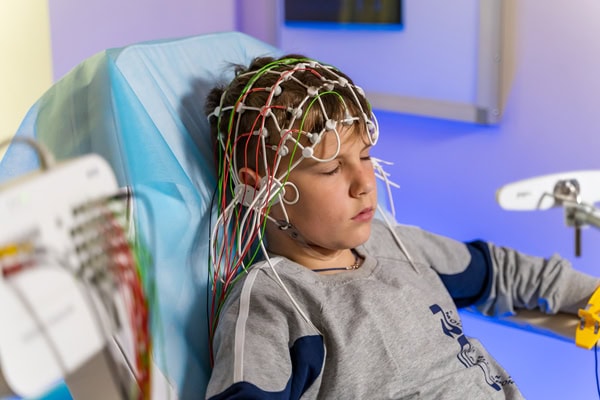As neuroscience advances accelerate, society faces profound questions about the ethical implications of technologies designed for cognitive augmentation and neural modification. This article examines the emerging field of neuroethics as it grapples with brain enhancement technologies, including neurostimulation devices, psychopharmaceuticals, and neural interfaces. By analysing tensions between potential benefits and risks, this exploration highlights critical concerns regarding equity, identity, autonomy, and the definition of “normal” cognitive function in an era of increasingly accessible neural interventions.
Table of Contents
The Evolution of Brain Enhancement: From Pharmaceuticals to Neural Interfaces
The human desire to enhance cognitive capabilities has a long history, from caffeine consumption to modern pharmaceuticals. However, contemporary neurotechnology represents a quantum leap in both precision and potency, raising unprecedented ethical questions about altering the organ most fundamental to our identity.
Today’s brain enhancement technologies span a spectrum of invasiveness, accessibility, and evidence bases:
- Pharmacological interventions, including prescription stimulants like methylphenidate and modafinil, originally developed for specific conditions but increasingly used off-label for cognitive enhancement
- Non-invasive neurostimulation techniques such as transcranial direct current stimulation (tDCS) and transcranial magnetic stimulation (TMS) that modulate neural activity through electromagnetic fields
- Consumer neurotechnology devices marketing improvements in focus, memory, and emotional regulation through various mechanisms
- Emerging invasive technologies including deep brain stimulation and neural implants designed to augment specific cognitive functions
These tools differ significantly in their regulatory status, scientific validation, and mechanism of action. While some have undergone rigorous clinical testing, others have entered consumer markets with minimal oversight, creating a complex landscape for potential users to navigate.
The Promise and Reality Gap
The allure of these technologies stems from their purported ability to enhance attention, memory, learning capacity, and other cognitive functions beyond typical baselines. However, a significant disparity often exists between marketing claims and scientific evidence. Most enhancement methods demonstrate modest, context-dependent effects rather than dramatic improvements, and individual responses vary considerably based on baseline capabilities, genetic factors, and environmental conditions.
This gap between expectation and reality creates its own ethical challenges, as individuals may make important decisions based on inflated perceptions of benefit or underestimated risks. The scientific community continues working to establish more precise understanding of these interventions’ effects across different populations and contexts.
Core Ethical Tensions in Cognitive Enhancement
The development and proliferation of brain enhancement technologies create several fundamental ethical dilemmas that intersect with broader societal values and priorities.
If cognitive enhancement technologies provide genuine advantages in educational or professional contexts, their unequal distribution risks exacerbating existing social disparities. Several dimensions of this concern merit consideration:
- Economic barriers may limit access to expensive technologies, creating “cognitive divides” between socioeconomic groups
- Geographic and infrastructural factors could restrict availability in rural or developing regions
- Differential effectiveness across genetic backgrounds may privilege certain populations
- Cultural attitudes toward enhancement may create uneven adoption patterns even when physical access exists
These concerns reflect broader questions about distributive justice in healthcare and technology. Some ethicists argue that if enhancements provide substantial benefits, ethical frameworks should treat them as resources requiring fair distribution rather than optional luxuries. Others maintain that prioritizing universal access to basic healthcare and education should precede concerns about enhancement technologies.
As enhancement technologies become more common, subtle and explicit pressures to use them may emerge in competitive environments. When peers, employers, or educational institutions begin expecting enhanced performance, the line between opportunity and obligation blurs. This raises fundamental questions about authentic choice and what constitutes coercion in contexts where enhancement becomes normalized.
The challenge extends to determining appropriate boundaries for different populations. While most ethical frameworks emphasize adult autonomy in decision-making, questions about parental authority to enhance children, employer rights to require enhancement, or military prerogatives regarding enhancement of personnel involve complex balancing of individual rights against other values.
Long-Term Societal Implications
Beyond immediate questions of regulation and access, brain enhancement technologies may gradually reshape fundamental aspects of human experience and social organization.
As enhancement capabilities advance, distinctions between therapy and enhancement become increasingly blurred. This phenomenon, sometimes called the “medicalization of normality,” raises questions about how society defines cognitive diversity, neurodevelopmental differences, and the boundaries of “normal” functioning.
When technological interventions can modify traits previously accepted as natural variations, pressure may build to “correct” or “optimize” an expanding range of cognitive profiles. This trend risks devaluing neurodiversity and narrowing conceptions of acceptable cognitive functioning, potentially transforming natural variations into “conditions” requiring intervention.
The implications extend to social identity and self-perception, as individuals increasingly view their cognitive capabilities through medicalized frameworks rather than as aspects of natural human diversity. Finding ethical balance requires maintaining respect for cognitive differences while acknowledging legitimate desires for personal enhancement.
At the philosophical core of neuroethical debates lies the question of cognitive liberty—the right to control one’s own cognitive processes—and its relationship to conceptions of human nature. Enhancement technologies challenge us to examine which aspects of cognition we consider fundamental to human identity and which we view as appropriate for technological modification.
Different cultural and religious traditions offer varying perspectives on the appropriate boundaries of intervention, with some emphasizing acceptance of natural limitations and others celebrating technological transcendence of biological constraints. These philosophical divergences inform different regulatory approaches and individual choices regarding enhancement.
Toward Responsible Innovation
The path forward requires balancing technological innovation with careful ethical consideration and appropriate oversight mechanisms.
As Dr. Christian Beste has noted in his research on cognitive neuroscience and enhancement, “The development of appropriate regulatory frameworks requires distinguishing between different categories of enhancement technologies based on their mechanisms, risks, and societal implications.” This nuanced approach would differentiate between high-risk implantable devices and lower-risk consumer technologies, applying proportional oversight while remaining adaptable to rapidly evolving science.
Effective governance must also balance protection against overregulation that might stifle beneficial innovation. International coordination becomes increasingly important as enhancement technologies cross borders through digital markets and medical tourism.
Conclusion: Navigating an Enhanced Future
Brain enhancement technologies will continue advancing regardless of ethical uncertainties, challenging society to develop frameworks that maximize benefits while minimizing harms. This requires ongoing dialogue between neuroscientists, ethicists, policymakers, and the public about acceptable boundaries and shared values.
Christian Beste and other researchers emphasize that responsible development demands proactive rather than reactive approaches to neuroethics, incorporating ethical consideration throughout the research and development process rather than applying it only after technologies reach markets. By fostering this integrated approach, society can harness cognitive enhancement’s potential while preserving the values and protections essential to human flourishing in an era of unprecedented neurological intervention.







